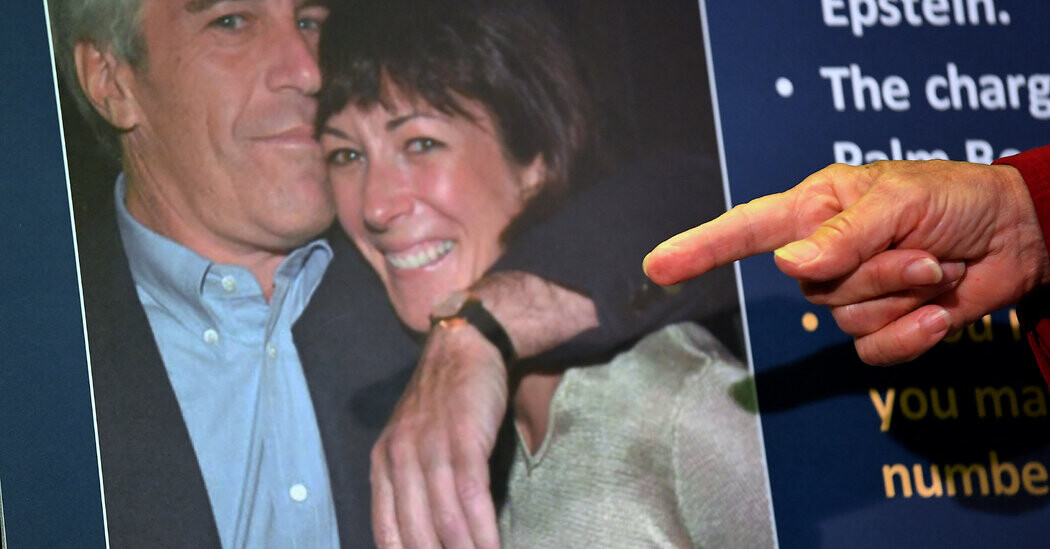

The president has been under intense political pressure from his base after Attorney General Pam Bondi withheld portions of investigative files on the disgraced financier.
The Justice Department asked a federal judge on Friday to unseal grand jury testimony from the prosecution of the disgraced financier Jeffrey Epstein as President Trump seeks to dispel a storm of criticism and conspiracy theories coming from many of his supporters.
The request was filed in Federal District Court in Manhattan, where Mr. Epstein was awaiting trial on sex-trafficking charges six years ago when he was found dead by hanging in his jail cell about a month after he was arrested. The New York City medical examiner ruled the death a suicide.
The government also sought the unsealing of grand jury testimony from the case of Ghislaine Maxwell, the socialite who in a 2021 trial was convicted of helping Mr. Epstein facilitate his sex trafficking scheme and was sentenced to 20 years in prison. She has appealed her conviction.
The filings on Friday followed Mr. Trump’s announcement in a social media post Thursday night that he had authorized Attorney General Pam Bondi to “produce any and all pertinent Grand Jury testimony, subject to Court approval.”
Obtaining court approval for unsealing the testimony could be difficult because the records are shielded by grand jury secrecy laws, to protect crime victims and witnesses. Judges rarely agree to grant public access to such materials.
The unsealing effort could take months, and the materials being sought are most likely only a small part of the evidence collected in the investigation.
Mr. Trump has been under intense pressure after Ms. Bondi withheld portions of investigative files related Mr. Epstein that some of the president’s most fervent supporters have demanded be made public.
Ms. Bondi agreed to release some materials, including flight logs for Mr. Epstein’s private jets that were already publicly available, but she held back others, including what administration officials described as material involving child sexual abuse.
The Justice Department’s review of the files “revealed no incriminating ‘client list,’” the department wrote in an unsigned July memo. “There was also no credible evidence found that Epstein blackmailed prominent individuals as part of his actions. We did not uncover evidence that could predicate an investigation against uncharged third parties.”
The backlash has been intense. Portions of Mr. Trump’s political base have turned on him, and Democrats, eager for an issue to rally around, have called for the administration to release what have come to be known as the Epstein files.
By directing Ms. Bondi to make the court filings, Mr. Trump is moving to shift the responsibility for releasing more of the material onto a federal judge, which could lessen the political pressure he is feeling.
The request for the unsealing of the Epstein material was submitted to Judge Richard M. Berman in Manhattan, who was overseeing Mr. Epstein’s case in the weeks before his death. Judge Berman was appointed to the federal bench by President Bill Clinton in 1998.